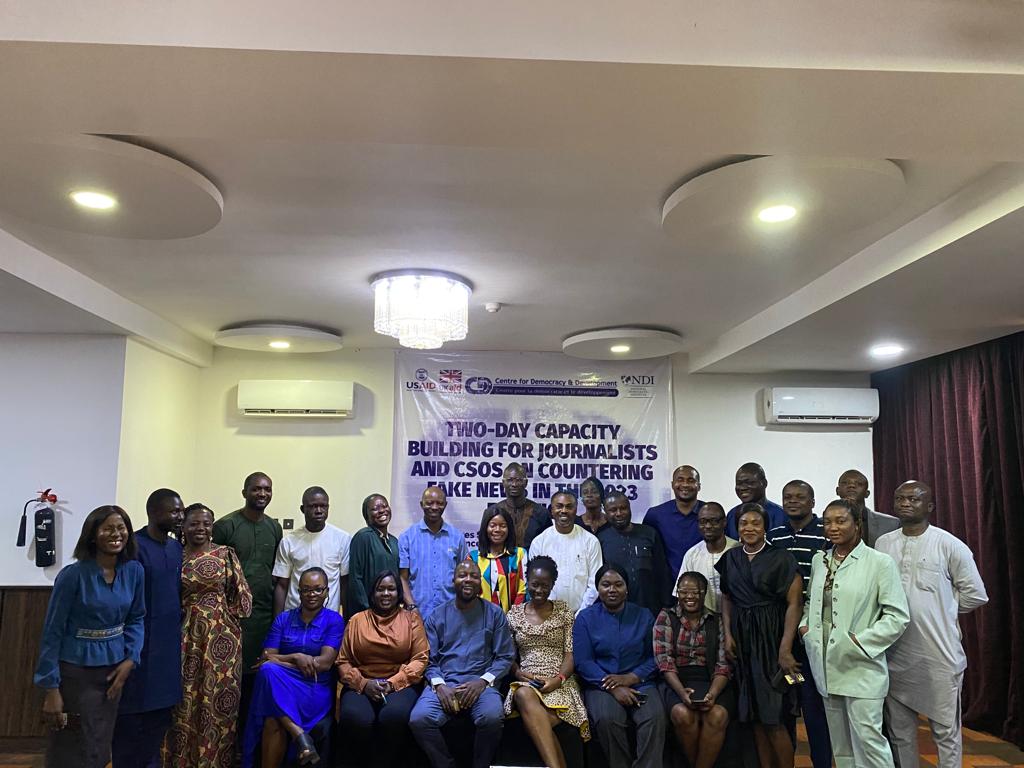
Center for Democracy and Development (CDD), has trained over 40 media professionals on how to detect and counter fake news before during and after the general election.
The two-days fact-checking training, held in Abuja and supported by National Endowment for Democracy (NED) and other partners was to sensitize participants on the dangers of fake news and how they can be well equip to counter it through fact check.
Taking participants through the technical sessions, the CDD Project Officer, Disinformation and Elections, Mr Abiodun Banjoko, “The purpose of the training was basically to ensure that we have a group of fact checkers from different parts of the country working together, before, during and after elections, to reduce the effect of disinformation on the country”.
Speaking on fake news ecosystems, the CDD Project Manager, Abiodun Banjoko, noted that the 21st Century has seen the weaponization of information on an unprecedented scale.
According him, misinformation in any country distorts reality and changes people’s perception of things.
Banjoko advised that while reporting election processes, participants must be non-partisan, fair, adhere to standards, and ensure transparency of sources, among others.
Earlier in his welcome remarks, the Communication Lead, CDD, Armsfree Ajanaku, explained that fake news have a negative influence on the voting pattern of the citizen’s and if left to thrive will encourage people that want to peddle the false news for their own good.
“False information in Nigeria spreads through various channels, but social media provides the cheapest and quickest ways to access millions,” he noted.”
“As gatekeepers, we have the duty of stopping this information from causing social and democratic harm, we already have fake news about the candidates and there would be still be an upsurge in misinformation such as; videos of violence, false statements, and several others, as the election draws near”. he said.
Ajanaku urged the participants to look beyond headlines, check multiple credible sources, be cautious with what is shared, and seek the input of experts when in doubt about information.
Participants were trained on how to use tools forensically, such as Google image search and TinEye to detect fake videos, tweets, pictures and news.
RN